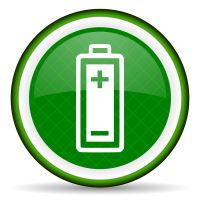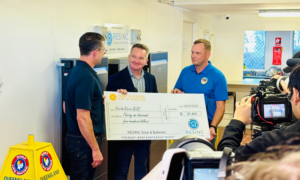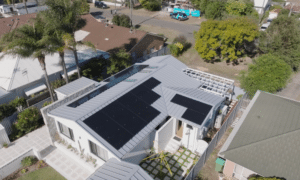University of Waterloo researchers have created a lithium-ion battery with a silicon anode that they say will result in cheaper, smaller and longer lasting energy storage devices.
Convention lithium-ion batteries use graphite anodes and this creates somewhat of a performance bottleneck due to the limitations of the material, which can only provide an energy density of ~150 Wh kg-1.
Silicon anode materials have a much higher capacity for lithium-ion battery applications; capable of producing batteries with 10 times more energy density ( ~1550 Wh kg-1).
However, a major challenge has been silicon contracts and expands by as much as 300 per cent with each charge cycle. This major expansion and contraction causes cracks that reduce battery performance and ultimately lead to short-circuiting and failure.
Zhongwei Chen, a chemical engineering professor at Waterloo, and his team in partnership with General Motors Global Research and Development Centre have developed a flash heat treatment that reduces volume expansion while also improving the performance and cycle capability of lithium-ion batteries.
This involves wrapping silicon nanoparticles (SiNP) with sulfur-doped graphene (SG) and shielding this composite arrangement with cyclized polyacrylonitrile (PAN), then baking it.
“The economical flash heat treatment creates uniquely structured silicon anode materials that deliver extended cycle life to more than 2000 cycles with increased energy capacity of the battery,” said Professor Chen.
Waterloo’s technology as it currently stands enables a 40 to 60 per cent increase in energy density in lithium-ion batteries; which has major implications for everything from small consumer devices, to home battery systems and right through to electric vehicles.
“The excellent performance combined with the simplistic, scalable and non-hazardous approach render the process as a very promising candidate for Li-ion battery technology,” says a paper on the team’s work; recently published in the journal Nature Communications.
One of the exciting aspects of this development is that it should be commercially available soon, with Professor Chen saying new batteries using silicon anodes could be on the market within the next year.
Professor Chen’s group focuses on the development of unique nanostructured materials for use in clean, sustainable energy technologies. Other energy storage technologies the team is working on include metal-air batteries, lithium sulfur (Li-S) batteries and various types of flow batteries.












































